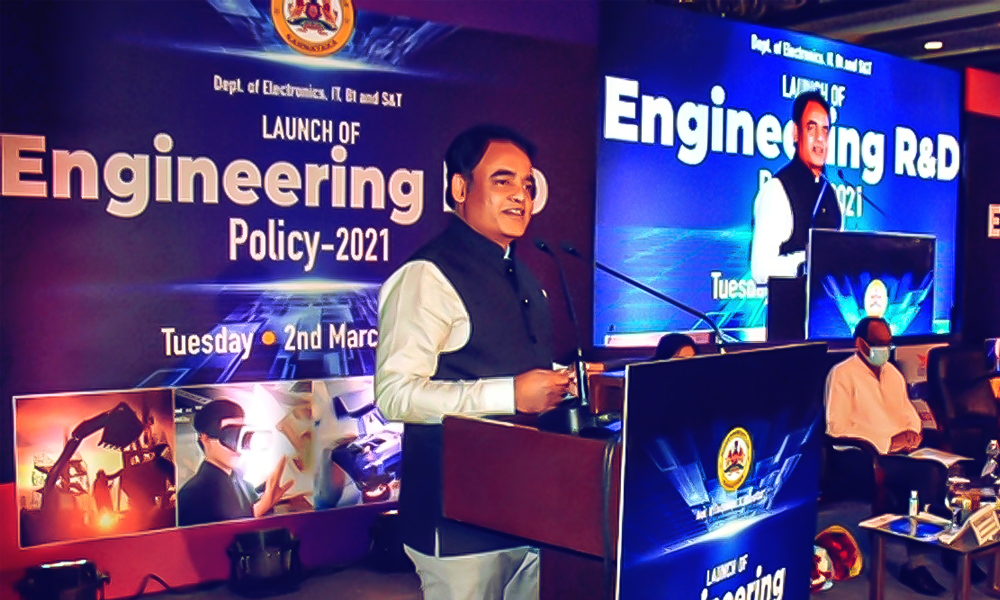
Image Credits: Dr AswathaNarayan/ Twitter
Karnataka Launches Engineering Research And Development Policy, Foresees 50,000 New Jobs
Writer: Ankita Singh
A literature lover who likes delving deeper into a wide range of societal issues and expresses her opinions about the same. Keeps looking for best-read recommendations while enjoying her coffee and tea.
Karnataka, 5 March 2021 9:58 AM GMT
Editor : Rakshitha R |
Rakshitha an engineer turned passionate journalist with an inclination for poetry, creative writing, movies, fiction, mountains and seclusion. Not a part of the social process but existential.
Creatives : Rajath
A free spirit who find meaning in life with the virtue of creativity and doing job par its excellence, animal lover and traveller by heart.
According to the policy document, the Government of Karnataka seeks to integrate the state's Engineering R&D ecosystem and strengthen its overall value proposition to champion India's Engineering R&D growth trajectory.
The Karnataka government launched Engineering Research & Development (Engineering R&D) Policy to raise its contribution to the sector to 45% in the upcoming five years, reported Money Control.
The main objective of the government is to leverage the sector's potential, create jobs and improve the state's contribution in this field through strategic interventions and bridging the gap between academia and industry. At present, Bengaluru accounts for 34% of all the multinational corporations (MNC) in India, and nearly 50% of the fortune 500 companies have a presence in the state.
The policy is developed in collaboration with the IT industry body National Association of Software and Service Companies (NASSCOM).
CN Ashwatha Narayana, Karnataka's deputy chief minister and in-charge of IT/BT, science and technology portfolios, said that the ER&D sector in the country is the fastest growing industry with a compound annual growth rate (CAGR) of 12.8%.
He said that the global Engineering Research and Development industry is expected to reach spending of 2 trillion dollars by 2025. Considering this scenario, he said, this policy aims to prepare the state to make use of future opportunities emanating from this sector.
The new policy expects the creation of an additional 50,000 jobs after its implementation.
According to the policy document, the Government of Karnataka seeks to integrate the state's Engineering R&D ecosystem and strengthen its overall value proposition to champion India's Engineering R&D growth trajectory, reported The Hindustan Times.
Kris Gopalakrishnan, the co-founder of Infosys as well as chairman of Karnataka's vision group on IT, said that Karnataka's journey in research and development began in the early 1980s when Texas Instruments set up an office in what would eventually become India's IT capital. "This is what started the IT revolution, R&D, remote software development," he said.
As per the official government data, there are at least 222 engineering colleges in the state, including 1,176 private institutions, 265 polytechnics and 12 junior technical schools.
However, a majority of students are not employable due to several reasons such as ineffective communication and technical skills, access to large companies and so on.
Gopalakrishnan said that this policy would help bridge the gap between engineering talent and the industry.
The policy will also support the industrial application of academic research. According to the official details, it will spend ₹10,000 per student on training and certification and provide grants to universities to set up laboratories.
 All section
All section














